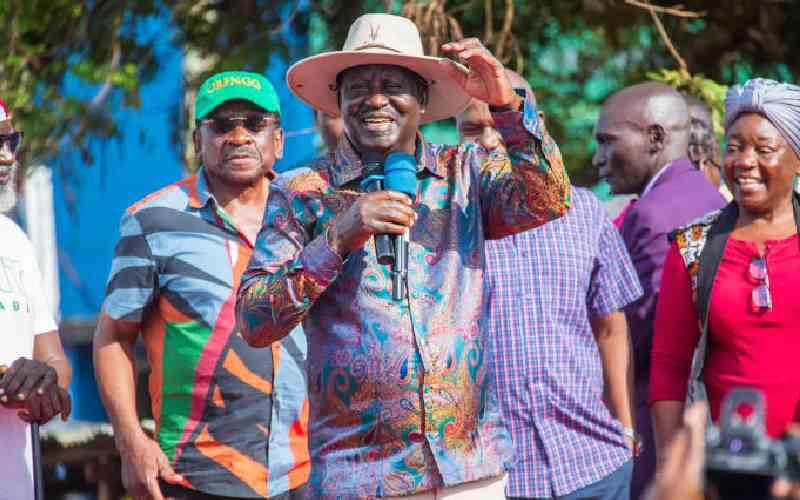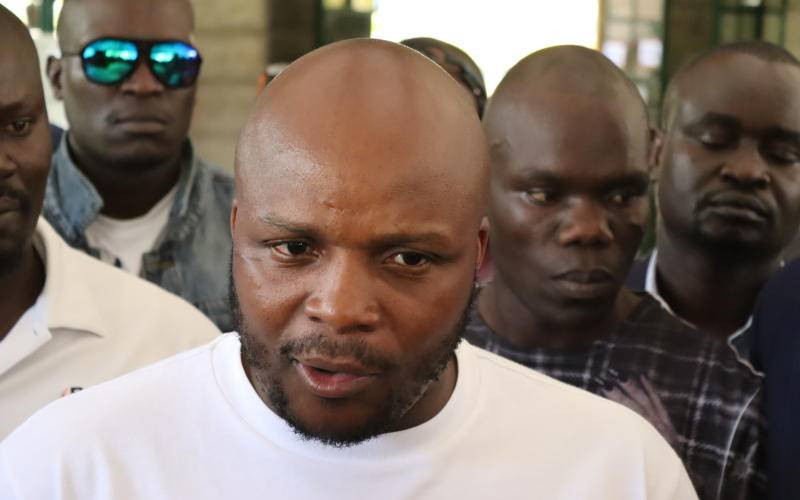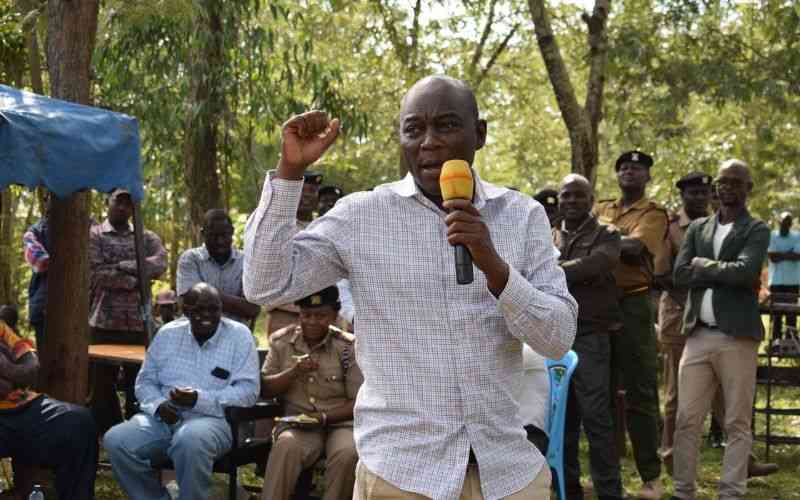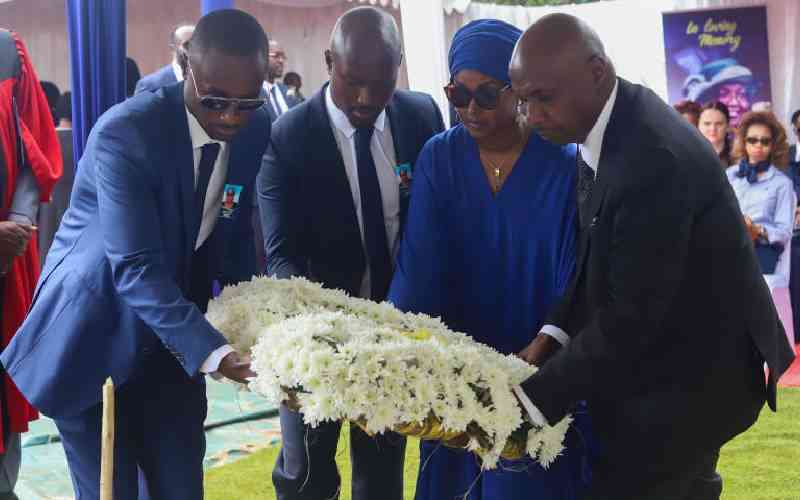By Stephen Makabila
Nairobi, Kenya: With resistance to proposed amendment to the Political Parties Act (PPA) by MPs and the Constitutional Implementation Commission (CIC), the financial fate of 56 political parties remains uncertain.
By election time last year, Kenya had 59 registered parties. While only three are currently funded by the State, Registrar of Political Parties Lucy Ndung’u has four pending applications that if approved, will raise the number to 63.
They are Democratic Labour Party of Kenya, Ufunguo Party, National Reconciliation Movement and the Metameta Party of Kenya.
“We have issued a provisional certificate of registration to the Democratic Labour Party while the three have their documents and constitutions being verified,” says Ndung’u.
The 56 political parties missing out on funding, some of them with a fair share of parliamentary representation, and under the leadership of political heavyweights, did not qualify for the Sh205 million state funding in the 2013/2014 financial year due to the stringent PPA.
These political parties will not benefit from the state funds for the next four financial years, until after 2017 when, depending on their performance in elections, they may benefit.
Relevant articles of the Constitution stipulate that for a party to qualify for state funding, it must garner at least five per cent of the total presidential votes cast. Thus, only ODM, TNA and URP qualified for the funding this financial year.
The parties that missed out on the allocation have 77 MPs in the eleventh Parliament and secured about 35 per cent of votes cast in the March 4 General Election. Those that missed include UDF led by Musalia Mudavadi, Wiper led by Kalonzo Musyoka and Ford-Kenya led by Bungoma Senator and Senate Minority leader Moses Wetangula.
No safeguards
Mudavadi has several times blamed the move on the hurried amendments by the Tenth Parliament, which he noted did not conceive constitutional safeguards on democracy. “The law must be changed. You cannot ignore political parties that have more than 77 MPs and hundreds of Members of County Assemblies (MCAs), governors and senators and yet it is taxpayers’ money,” Mudavadi told The Standard On Sunday.
The same PPA, apart from denying them state funding, restricts them on the amount of financial support from friends, party leaders and even foreign donors.
Moi University lecturer Masibo Lumala says starving political parties of funding would weaken them, especially those with parliamentary representation and strong regional representation.
“The law is not cast in stone, there should be a way of relaxing the PPA through an amendment to facilitate future funding for all parties with parliamentary representation,” says Dr Lumala.
Ms Ndung’u, in a previous interview with The Standard on Sunday, expressed hope that though the parties had been locked out of this year’s allocations, they would benefit in the coming financial year if amendments on PPA go through.
Stay informed. Subscribe to our newsletter
“We are aware most of those not funded are financially strained and cannot operate and perform duties expected of them effectively, but all rests on whether the amendment will go through or not,” she said.
Shared out
Ndung’u said the Sh205 million had been shared between ODM, TNA and URP. She promised to fight for more allocations, noting that the fund is supposed to account for 0.3per cent of the national revenue, which works to about Sh2.6 billion this financial year.
When the High Court threw out a case filed by some of the political parties in February, the Centre for Multi-Party Democracy (CMD) chairman Omingo Magara indicated that the lobby would appeal the ruling, but equally confirmed to The Standard On Sunday that pushing for an amendment of the PPA was also on the cards.
But as the Senate, through a Bill by Kakamega County Senator Bonny Khalwale, invited public debate, MPs and CIC put up opposition. When Nyachae and his team appeared before the Senate Committee on Legal Affairs, chaired by Busia Senator Amos Wako, he said the amendments were discriminatory and would be to the disadvantage of the outfit that works hard in fielding a presidential candidate.
Punitive move
“The proposal is punitive to political parties that field presidential candidates. They shouldn’t be punished because no one stops any political party from fielding a presidential candidate,” Nyachae said.
He warned that the clause in the proposed law might be exploited by individuals only interested in the funds from the Treasury.
“The Constitution says parties should display a national character. There is a possibility that those parties with a single member in the county assemblies may not be of that character,” said Nyachae.
But Ndung’u differed with the committee’s position, saying the national character of any political party was not easy to determine.
“A party may not have seats at the top level, but it may be well represented at the counties. Are we saying we can reward some parties and leave out others, yet this is taxpayers’ money?” posed Ms Ndung’u.
MPs said they were not ready to dilute the law passed in 2010, and dismissed the proposed changes as unconstitutional and only intended to help “briefcase” parties.
“We are not going to accept that. I don’t know what is wrong with senators; they are always involving themselves in things that are not within their mandate. That is the work of the National Assembly,” said Suba MP John Mbadi, whose ODM party is a beneficiary of the funds this year.
New Ford-Kenya Secretary General, Benjamin Mwema said failure to fund political parties would return the country to the era of individual ownership while Magara had argued the Act violates the Constitution under Articles 10 and 38, noting that any other law that is inconsistent with the Constitution is considered null and void.
According to Magara, the Constitution, in Article 10, stipulates public participation and democracy as national values while Article 38 proclaims the right to vote and to be elected among other rights.
Navakholo MP Emmanuel Wangwe (UDF) said not all MPs were opposed to the PPA amendment, and that he was personally supportive of the amendment bill by Senator Bonny Khalwale.
 The Standard Group Plc is a
multi-media organization with investments in media platforms spanning newspaper
print operations, television, radio broadcasting, digital and online services. The
Standard Group is recognized as a leading multi-media house in Kenya with a key
influence in matters of national and international interest.
The Standard Group Plc is a
multi-media organization with investments in media platforms spanning newspaper
print operations, television, radio broadcasting, digital and online services. The
Standard Group is recognized as a leading multi-media house in Kenya with a key
influence in matters of national and international interest.
 The Standard Group Plc is a
multi-media organization with investments in media platforms spanning newspaper
print operations, television, radio broadcasting, digital and online services. The
Standard Group is recognized as a leading multi-media house in Kenya with a key
influence in matters of national and international interest.
The Standard Group Plc is a
multi-media organization with investments in media platforms spanning newspaper
print operations, television, radio broadcasting, digital and online services. The
Standard Group is recognized as a leading multi-media house in Kenya with a key
influence in matters of national and international interest.








